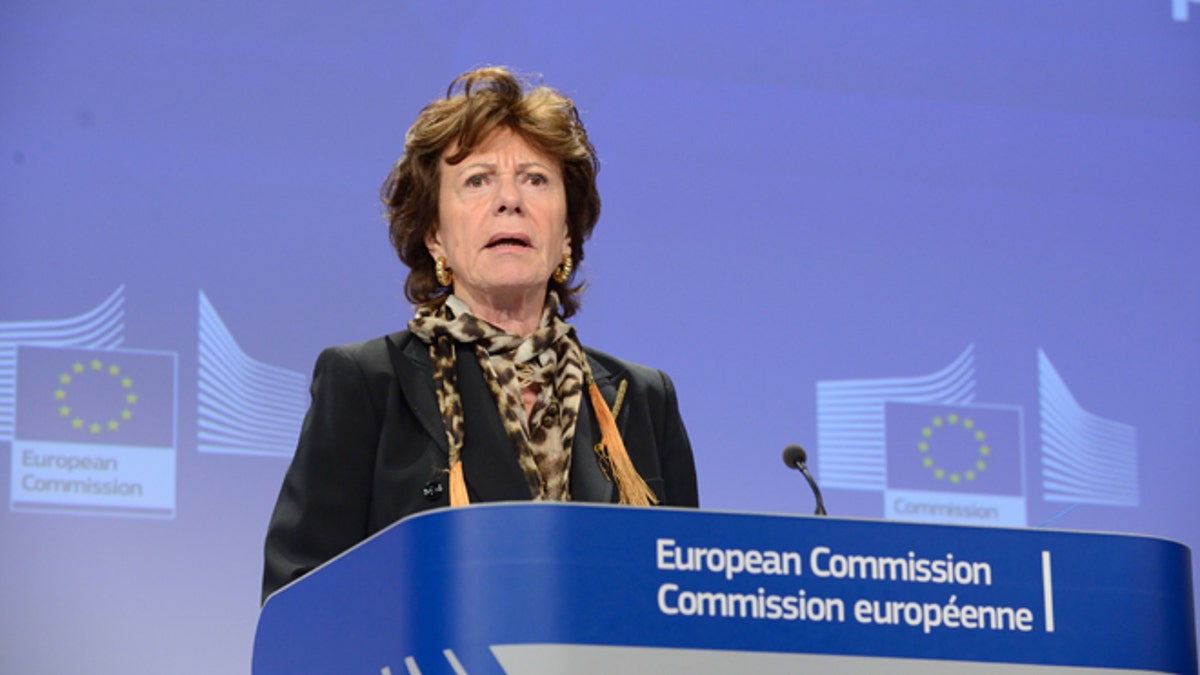
Feb. 12, 2014: Neelie Kroes, vice-president of digital agenda for the European Commission, speaks at a press conference on Internet Governance. (EC)
European authorities are calling for changes to how the Internet is regulated, following a series of revelations about the U.S. National Security Agency’s surveillance practices.
The revelations about efforts from U.S. spy agencies to tap into the very backbone of the Internet have shaken worldwide faith in online privacy, leading Europe’s multinational governing body the European Commission to suggest that the world revisit how the Web is maintained.
[pullquote]
"The next two years will be critical in redrawing the global map of Internet governance,” Commission Vice-President Neelie Kroes said in a statement. “ Europe must contribute to a credible way forward for global Internet governance. Europe must play a strong role in defining what the net of the future looks like.”
The Internet was invented in the United States and is currently run by a non-governmental organization called the Internet Corporation for Assigned Names and Numbers (ICANN), established in 1998 and headquartered in Los Angeles. ICANN decides which domain names exist -- ".com" or ".net," for example -- as well as which governments operate national country-code suffixes, such as ".uk" for the United Kingdom.
Now the EC is seeking “a clear timeline for the globalization of ICANN” and commitments to transparency and security.
The EC push is the latest effort to wrest control of the Internet from ICANN and the United States, a movement spearheaded by the United Nations through a body known as the International Telecommunications Union. A global outcry followed revelations in 2012 that the ITU sought to regulate the Internet, which U.S. representatives feared could have led to content censorship.
Kroes said the EC isn’t in favor of regulation from the UN agency.
“We are rejecting a United Nations or governmental take-over of Internet governance. We want geographic balance, not government control. We want a timeline to globalize ICANN governance. And we want to make sure everyone has a voice in the debate,” she said.
Nigel Hickson, a vice president at ICANN, said the American agency hopes to maintain its governance approach, which enables private companies, technical experts and the public to advise the agency.
"ICANN is pleased that the European Commission in this important communication is emphasizing the need to sustain the multi-stakeholder approach to governing the Internet. It is an approach that is defined by global inclusivity, where voices from business, government and independent Internet users are welcome,” Hickson said in an email.
“We are looking forward to working together with all relevant global parties … to create policy solutions aimed at keeping the Internet open and unified, which is vital for the growth of national economies."
Tuesday was labeled a global day of protest against online surveillance, with over 5,000 websites joining in a protest called The Day We Fight Back. Participants were asked to post banners of support and encouraging people to contact their representatives in Congress to get behind the USA Freedom Act, legislation proposed by Rep. Jim Sensenbrenner (R-Wis.) and Sen. Patrick Leahy (D-Vt.). The bill would put curbs on the NSA's domestic surveillance practices, particularly on the use of the massive database of U.S. communications it has been building.








































